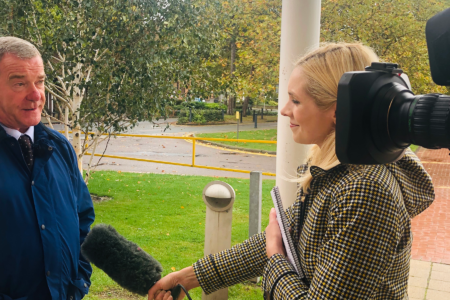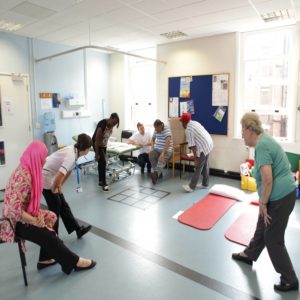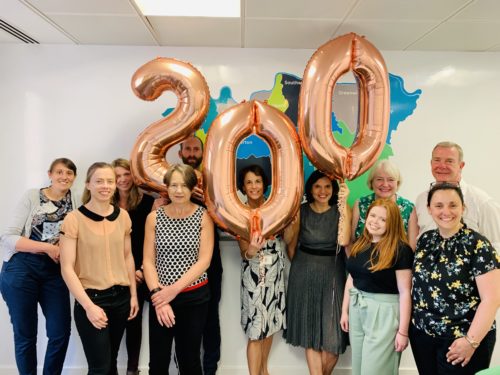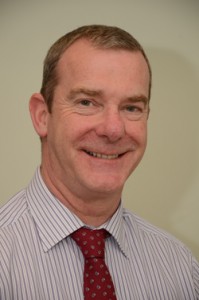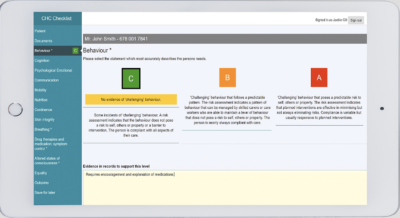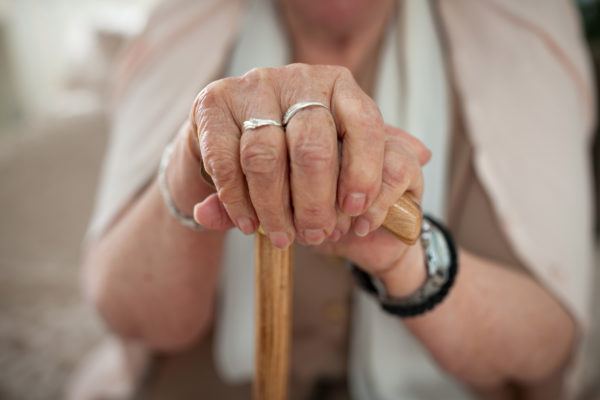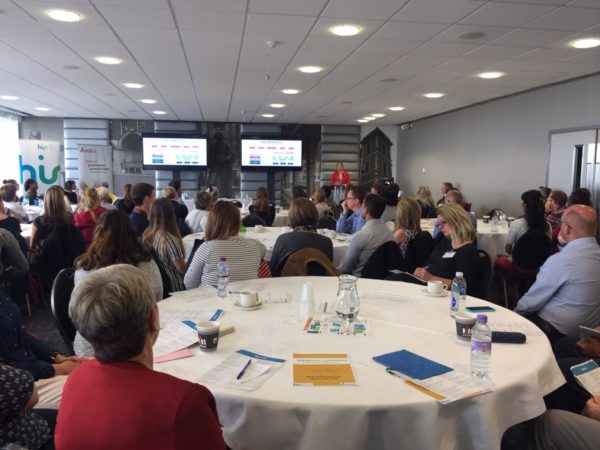As part of National Arthritis Week, BBC London have featured the innovative rehabilitation programme, created by Prof Mike Hurley, Clinical Director at Health Innovation Network.
It is estimated that over 14,000 people will have taken part in ESCAPE-pain programmes across 230 sites in the UK.ESCAPE-pain is for people with chronic knee and hip pain (known as osteoarthritis, a musculoskeletal condition) and has been shown to make marked improvements to quality of life for people living with the condition. The success of ESCAPE-pain has also led to a newpilot programme for back pain being launched.
Around 8.75 million people aged 45 years and over (33 percent) in the UK have sought treatment for osteoarthritis. Despite the risk of side effects and high costs, treatment for osteoarthritis has traditionally been the prescription of painkillers, typically non-steroidal anti-inflammatory drugs (NSAID), with little practical support.
ESCAPE-pain’sfocus on education and exercise offers people and GPs options to better manage pain associated to osteoarthritis.The programme runs for a total of 12 sessions over six weeks with participants attending two, hour-long classes a week.The classes teach people the skills they need to self-manage and reduce their pain.Each class starts with a brief discussion about pain and how it can be reduced and is then followed by an individualised exercise programme.
ESCAPE-pain creator Professor Mike Hurley said:
“Chronic joint pain is miserable. It creates a vicious cycle of severe pain, leading to prolonged rest, which leads to further muscle weakness, which leads to physical instability and fatigue. This inactivity increases the risk of co-morbidities such as diabetes and cardiovascular disease. These physical health issues and disability then contribute to social isolation, feelings of helplessness, anxiety and depression, and long-term use of pain killers that people don’t like taking and haven’t been proven to work in the longer term.
“I wanted to find a better way to help people living with chronic pain and with ESCAPE-pain, we’ve shown that a combination of education, self-management, coping strategies and individualised exercise regimes can achieve better outcomes.”
David Rawlings, exercise referral specialist at gym and leisure centre, Leisure at Cheltenham, has been running the ESCAPE-pain programme at the centre with physiotherapists from Cheltenham General Hospital for over three years.
David said:
“People love it and for some it literally is life-changing. Some of the participants we have had on the course had stopped going out and participating in family life or in their community. After attending ESCAPE-pain they become more active, are able to manage their pain and their arthritis better and build the confidence to move and become more active again.”
Jenn Holeman, senior musculoskeletal physiotherapist at Cheltenham General Hospital leads the ESCAPE-pain programme at the leisure centre said:
“I would recommend the ESCAPE-pain programme 100 percent both professionally and personally. It is great and I think all areas should be taking it up. It saves the NHS money because rather than 30 minute one-to-one physiotherapy sessions up to 16 people are having group sessions with one physiotherapist and gym instructor twice a week and it relieves the pressure on GPs because it cuts down on the amount of patients seeking treatment for their symptoms.”
Recent independent evaluations have also reinforced how much money the NHS saves by taking this approach, showing that every £1 invested returns over £5 in wider health and social value through people needing to use services and medication less. Overall it equates to an estimated £1.3 million total savings in health and social care for every 1,000 participants who undertake ESCAPE-pain.
Now, Londoners with chronic back problems have been given the opportunity to access a similar self-management programme. This pilot programme available at four London Trusts and over 150 people have benefitted to date.
Matt Whitty, deputy director of Innovation and Life Sciences, NHS England and NHS Improvement says that the ESCAPE-pain programme is a: “great example of a proven, low-cost innovation that transforms lives.”
“It will mean more people with chronic joint pain getting better care in their local communities and being able to live more independently with a higher quality of life. Responding to needs through this sort of cross sector working is crucial to how we will deliver the NHS Long Term Plan,” he continued.
Sarah Worbey, health and inactivity national partnerships lead at Sport England adds:
“The Sport England Active Ageing fund supports innovative approaches that aim to tackle inactivity among older people, the ESCAPE-pain programme fits perfectly into this.
“We are pleased to have partnered with the Health Innovation Network and Versus Arthritis to enable this programme to be tested through community and leisure settings, for those who are the least active and need it the most.
“It is encouraging for us to hear how participants are making important lifestyle changes and becoming more physically active through their participation in the programme.”
Data gathered from over the last three years from more than 5,000 ESCAPE-pain participants shows consistent improvements in pain levels, quality of life, and movement.
Almost three quarters of the participants who took part in the programme (70 percent) reported to have improved their ability to take part in daily activities, 66 percent reporting pain reduction and 59 percent having a better quality of life and mental wellbeing.
We're here to help
If you have any questions or would like more information about ESCAPE-pain. Please contact us.
Get in touch